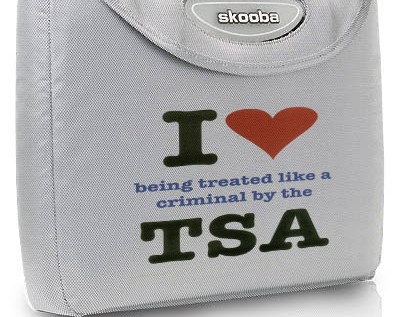Judge Limits DHS Laptop Border Searches

A federal judge has ruled that border agents cannot seize a traveler’s laptop, keep it locked up for months, and examine it for contraband files without a warrant half a year later.
U.S. District Judge Jeffrey White in the Northern District of California rejected the Obama administration’s argument that no warrant was necessary to look through the electronic files of an American citizen who was returning home from a trip to South Korea.
“The court concludes that June search required a warrant,” White ruled on June 2, referring to a search of Andrew Hanson’s computer that took place a year ago. Hanson arrived San Francisco International Airport in January 2009.
The Justice Department invoked a novel argument–which White dubbed “unpersuasive”–claiming that while Hanson was able to enter the country, his laptop remained in a kind of legal limbo where the Bill of Rights did not apply. (The Fourth Amendment generally requires a warrant for searches.)
“Until merchandise has cleared customs, it may not enter the United States,” assistant U.S. attorney Owen Martikan argued. “The laptop never cleared customs and was maintained in government custody until it was searched…”
This is not exactly a new dispute: two years ago, the U.S. Department of Homeland Security’s Customs and Border Protection announced that it reserves the right to seize for an indefinite period of time any laptops that are taken across the border.
Last year, the department reiterated that claim, saying laptops and electronic gadgetry can still be seized and held indefinitely. There’s no requirement that they be returned to their owners after even six months or a year has passed, though supervisory approval is required if they’re held for more than 15 days. The complete contents of a hard drive or memory card can be perused at length for evidence of lawbreaking of any kind, even if it’s underpaying taxes or not paying parking tickets.
In response, Sen. Russ Feingold, a Wisconsin Democrat, introduced a bill that would require border agents to obtain a warrant or court order to hold such a device for more than 24 hours.
Customs agents say that after Hanson was randomly selected for a secondary baggage examination, he became nervous. That led Customs agent Sheryl Edwards to ask for an examination of Hanson’s laptop, a digital camera with memory card, two CD-ROMs, and two DVDs.
That examination, customs agents say, showed one incriminating photograph: an adolescent girl covered with mud, standing on a beach, and not wearing any clothes. Edwards concluded that the image was illegal; Hanson was charged with transportation and possession of child pornography in September 2009. He has pleaded not guilty.
For his part, Eric Chase, an attorney representing Hanson, acknowledged that an immediate search conducted at the border without a warrant is permissible. But police perusal of a hard drive six months later definitely is not, he said when asking the court to toss out the results of the June 2009 search.
“As applied to border searches generally, agents, after taking their permissible look while at the border crossing itself, would be free to ‘detain’ electronic devices and conduct further examinations whenever and wherever they pleased as justified solely because their ‘peek’ exposed the computer’s contents to law enforcement,” Chase wrote.
Customs agents also searched Hanson’s laptop three times in February 2009, with the first search taking place about a week after he entered the country and turning up no evidence of child pornography. The second and third searches allegedly did. White allowed the results of those searches to be used as evidence, saying they were “justified as an extended border search supported by reasonable suspicion.”
A 2006 Police Blotter article reported that the Ninth Circuit, which sets precedents that are binding on San Francisco federal courts, ruled that random searches of laptops at the border without a search warrant is permissible. But the Ninth Circuit did not address what happens if the search takes place a month or half a year later.



